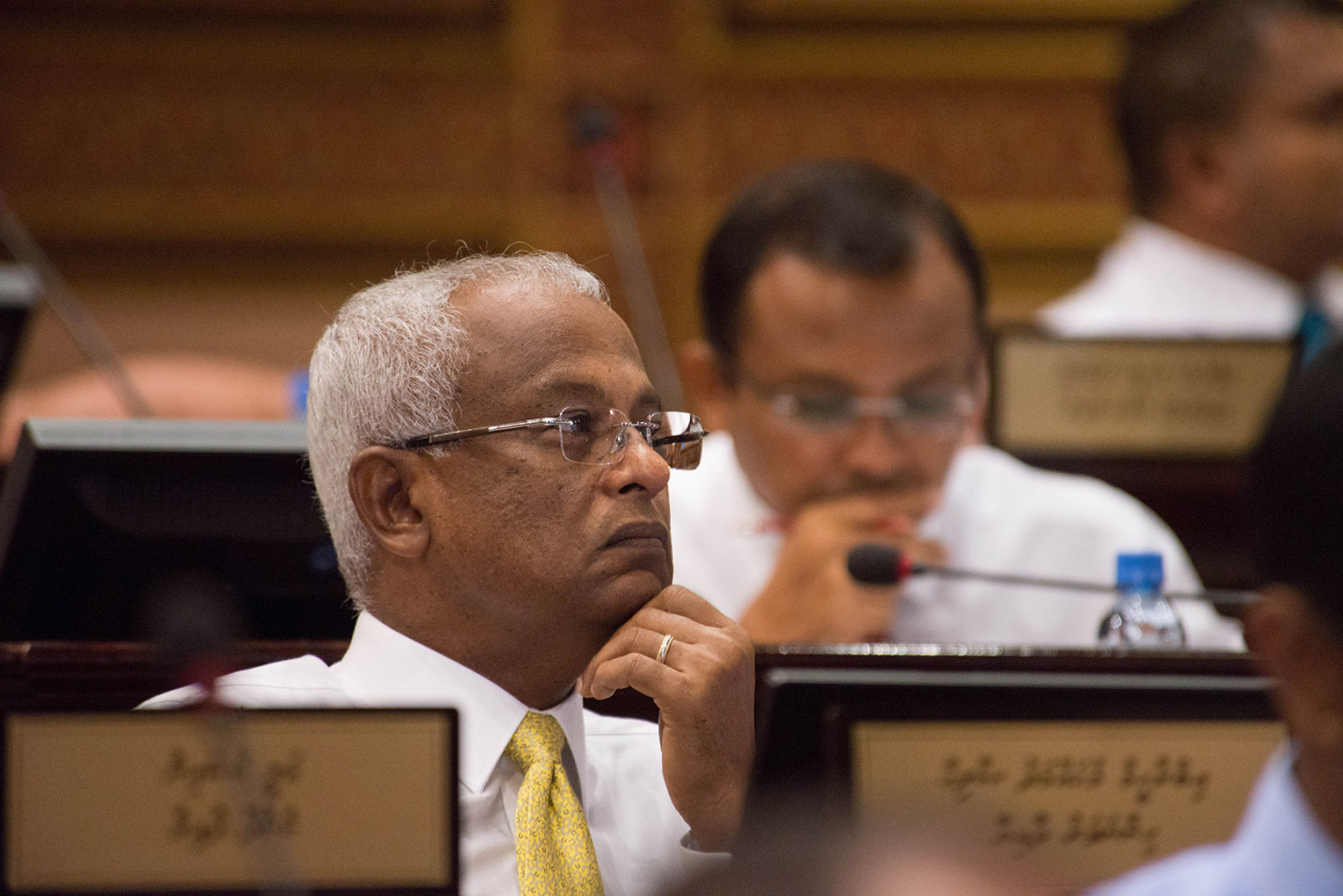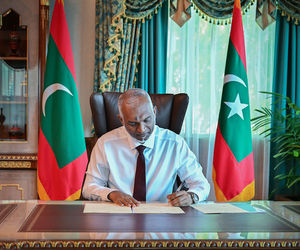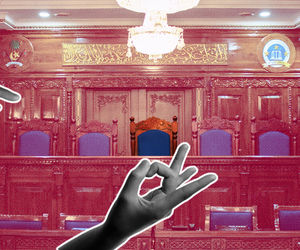
28 Oct 2018, 09:00
Parliament resumed sittings on Sunday, ending a military lockdown of the premises and an opposition boycott of sessions.
The sitting saw the introduction of a bill to repeal the Anti-Defamation Act, a bill to repeal the Anti-Defection Act and a resolution calling on the prosecutor general and Supreme Court to review the terror conviction against former president Mohamed Nasheed.
Joint opposition lawmakers attended a parliament session for the first time since July 2017, when they launched a boycott following the removal of 12 ruling party lawmakers who had defected.
There had previously been a military presence at the parliament building. Uniformed troops blocked opposition MPs from entering, even dragging them out. In February, during a state of emergency, lawmakers were seen being manhandled and removed from the compound.
Become a member
Get full access to our archive and personalise your experience.
Already a member?
Discussion
No comments yet. Be the first to share your thoughts!
No comments yet. Be the first to join the conversation!
Join the Conversation
Sign in to share your thoughts under an alias and take part in the discussion. Independent journalism thrives on open, respectful debate — your voice matters.




